Russia steps up its Ukraine offensive as west raises alarm over chemical weapons
The war is ugly but only ‘going to get worse,’ warns one expert
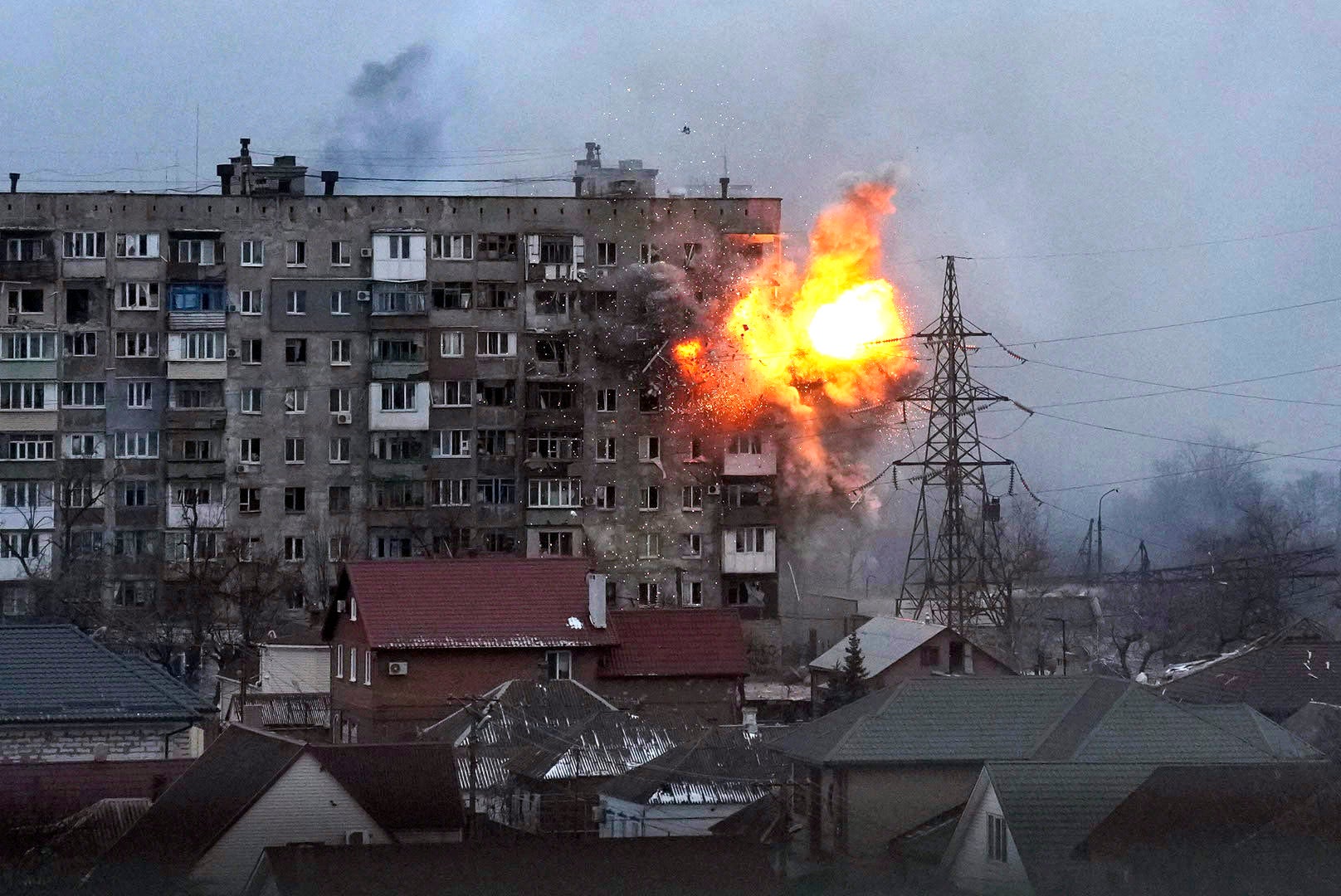
Your support helps us to tell the story
From reproductive rights to climate change to Big Tech, The Independent is on the ground when the story is developing. Whether it's investigating the financials of Elon Musk's pro-Trump PAC or producing our latest documentary, 'The A Word', which shines a light on the American women fighting for reproductive rights, we know how important it is to parse out the facts from the messaging.
At such a critical moment in US history, we need reporters on the ground. Your donation allows us to keep sending journalists to speak to both sides of the story.
The Independent is trusted by Americans across the entire political spectrum. And unlike many other quality news outlets, we choose not to lock Americans out of our reporting and analysis with paywalls. We believe quality journalism should be available to everyone, paid for by those who can afford it.
Your support makes all the difference.Russia widened its offensive in Ukraine on Friday, striking cities in the west of the country for the first time, with warnings of possible false-flag attacks. But President Volodymyr Zelensky defiantly declared that his country has reached a “strategic turning point” in the war.
In a significant change of tack, a 40-mile long Russian military convoy, heading for Kyiv, appeared to have split and was travelling to vantage points around the Ukrainian capitals. New satellite imagery from the company, Maxar Technologies, showed tanks and artillery taking up firing positions to the northwest of the city.
More fortifications, including tank traps, were being put on the edges of the city with more members of the Territorial Defence Force joining the efforts. One group, on the eastern outskirts of the city, said that they had been warned to expect probing Russian attacks.
Anton Vlasenko, who had previously served in the Ukrainian army before becoming a mathematics teacher, said: “There is definitely much more movement up ahead now, we think there are Russian troops on either side of the road. And they may try to come this way. We are here, our soldiers are here, and we will do our best to make sure they don’t get into Kyiv.”
So far, the Russians have made the biggest advances on Ukrainian cities in the east and south – including in Mariupol, the heavily bombarded seaport where hundreds of thousands of civilians are trapped amid continual bombardment and scrounge for food and fuel.
On Friday, Russian forces continued to launch airstrikes in urban areas.
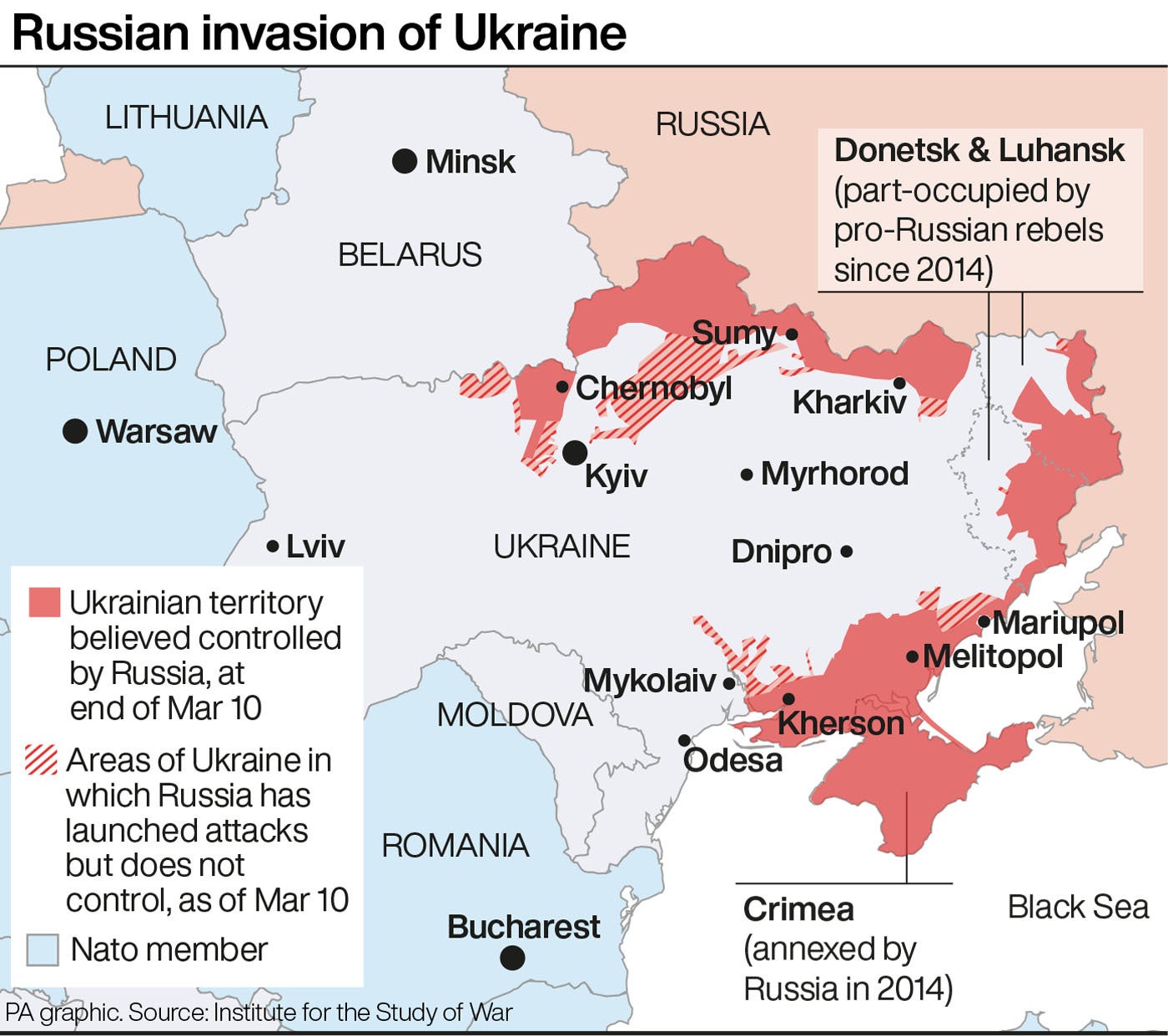
Russian Defence Ministry spokesman Igor Konashenkov said it used high-precision long-range weapons to put military airfields in Lutsk and Ivano-Frankivsk in the west of Ukraine “out of action”.
The Lutsk strikes killed four Ukrainian servicemen. In Ivano-Frankivsk, residents were ordered into shelters in an air raid alert. Russian airstrikes also targeted for the first time the eastern city of Dnipro, a major industrial hub and Ukraine’s fourth-largest city, killing at least one person.
The Ministry of Defence (MoD) said that after making “limited progress”, Russian forces were trying to “re-set and re-posture” their troops, gearing up for operations against Kyiv.
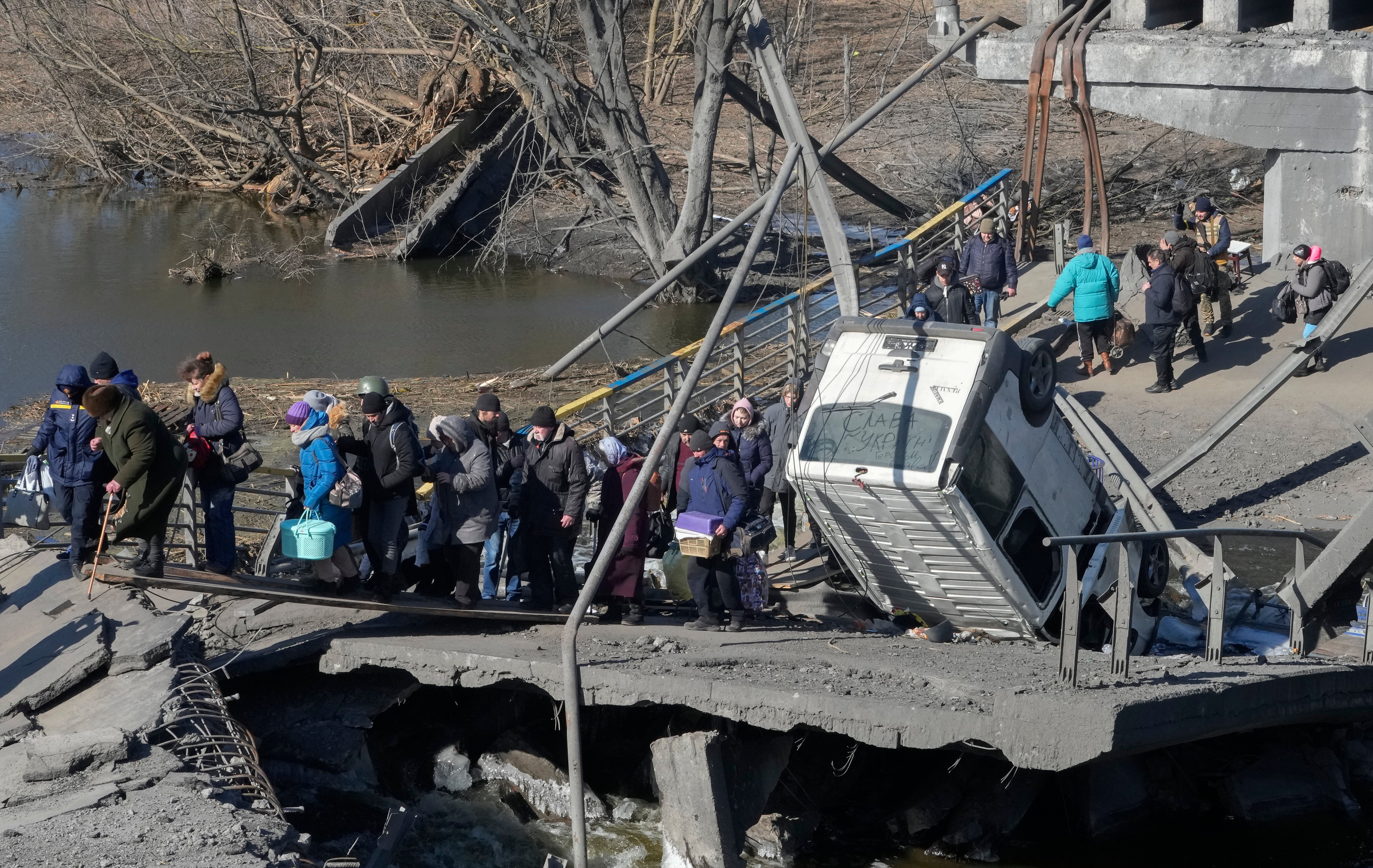
“It’s ugly already, but it’s going to get worse,” said Nick Reynolds, a land warfare analyst at Royal United Services Institute (RUSI), a British think tank.
Meanwhile Moscow announced a potential further spiralling of the war, by saying that thousands of “volunteers” from the Middle East, believed to be Syrians, were due to arrive in the separatist republics of Donetsk and Luhansk.
However, Mr Zelensky struck a defiant that his country could win the war. He declared Ukraine had reached a “strategic turning point” and his senior security officials claimed that Russian forces have been fought to a standstill in the last 24 hours.
Ukrainian troops, they maintained, had launched counter-offensives around Kyiv as well as the besieged city of Kharkiv, inflicting heavy damage.
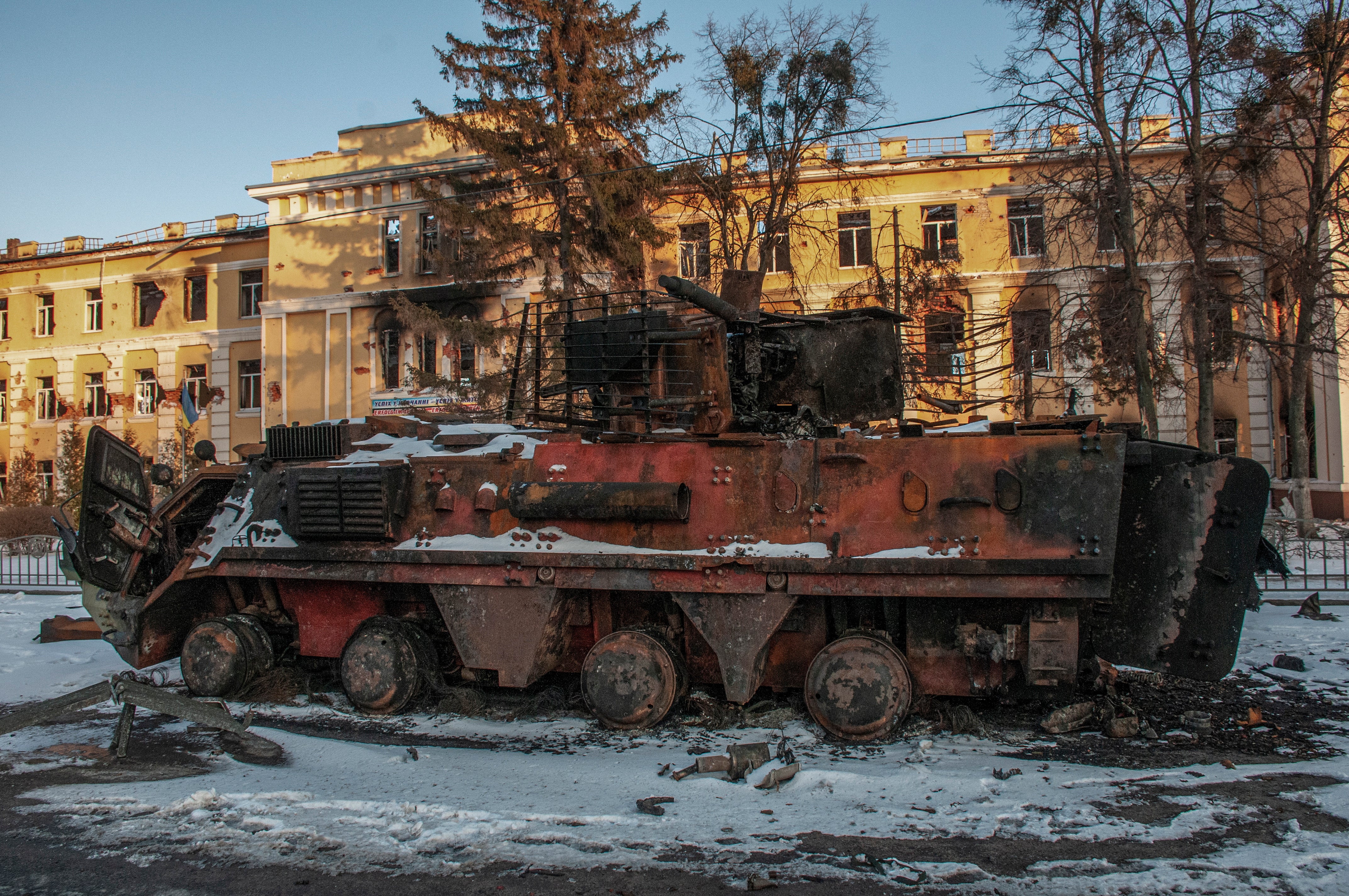
On the subject of the “volunteer” fighters mentioned by Moscow President Zelensky said: “Artillery, bombs, missiles – now there’s Syrian mercenaries who do not differentiate who speaks which language here... those mercenaries are just simply built to kill, in a land alien to them.”
Meanwhile, there was news of further losses in the senior ranks of the Russia’s Ukraine mission with the reported death of the third major general – out of 20 of deployed in theatre – in the first 15 days of the war.
The death of Major General Andrey Kolesnikov, commander of the 29th Combined Arms Army, confirmed by western officials, followed the killings of Major General Vitaly Gerasimov, and the deputy commander of the Russian invasion force, Major General Andrei Sukhovetsky.
The extraordinarily high-level of attrition among senior commanding officers has come, it is suggested, because they have been sent to the frontline to bolster a flagging mission and motivate troops.

There were reports of further disarray in the higher echelons of the Kremlin’s security establishment with claims that two senior officers in the FSB – Russia’s main intelligence service have been placed under house arrest.
The two men, Colonel General Sergei Beseda and his deputy, say western officials, were involved in the planning of the Ukraine mission and, in particular, giving President Putin forecasts of political developments in the country following the invasion.
Meanwhile, President Putin was warned on Friday of a “dramatic increased response” from the west should he begin using chemical weapons in Ukraine, after intelligence officials claimed the Russian president was preparing to create a “man-made disaster” at the Chernobyl nuclear power plant as a pretext.
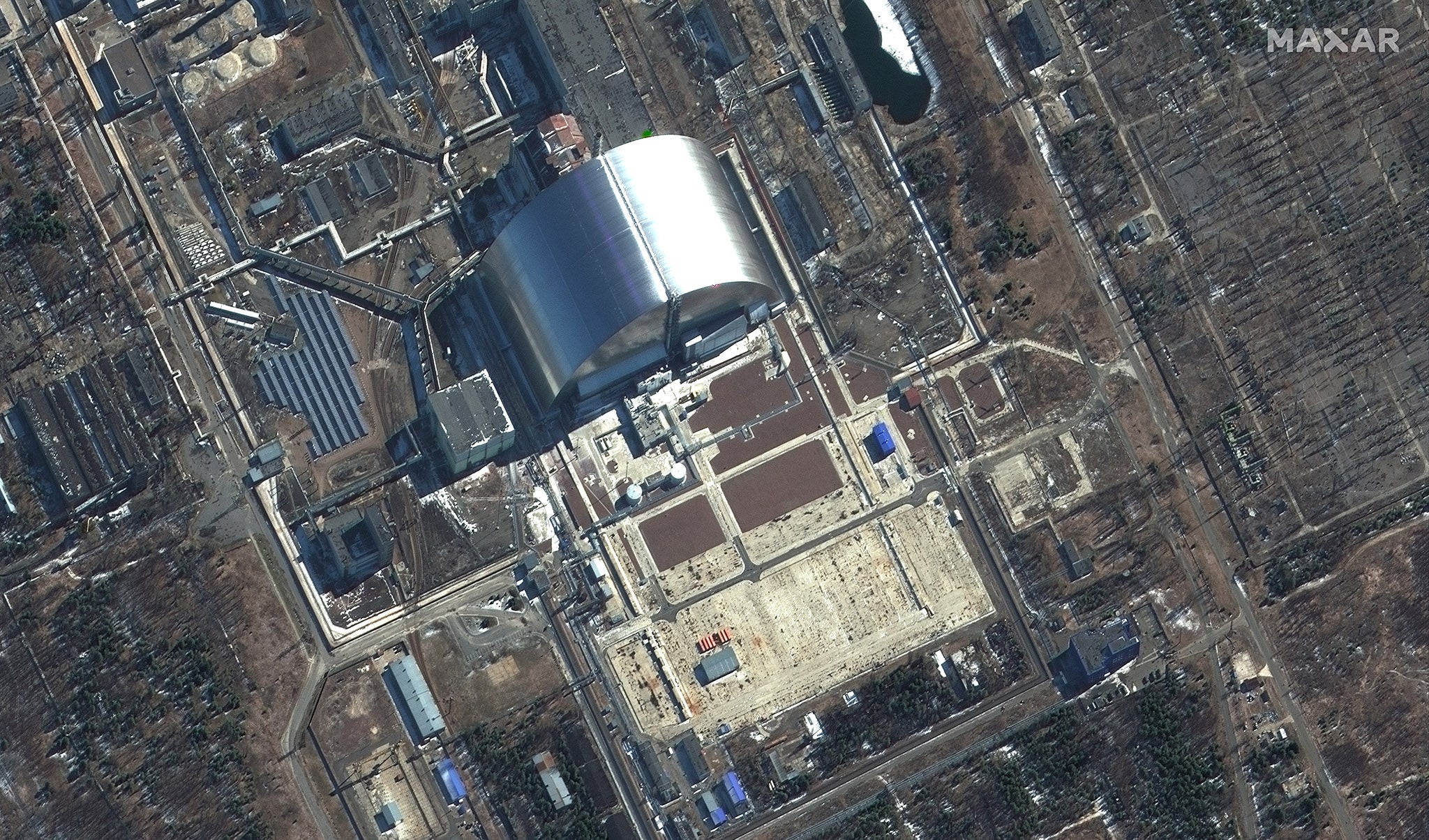
Linda Thomas-Greenfield, US envoy to the United Nations, said that Moscow’s claims of US “biological activities” in the eastern European country were a potential “false flag” effort in action.
Repeating Washington’s position that Ukraine does not have a biological weapons programme, she added it was Russia that could use such agents.
“Russia has a track record of falsely accusing other countries of the very violations that Russia itself is perpetrating,” Ms Thomas-Greenfield told the 15-member council meeting.
Fears of a humanitarian disaster escalated as the bombardment of Mariupol continued. Repeated attempts to send in food and medicine and evacuate civilians from the city of 430,000 have been thwarted by continued attacks. Ukrainian deputy prime minister Iryna Vereshchuk put the number of dead in the besieged city at more than 1,300.
Some 2.5 million people have fled Ukraine since the invasion began, according to the United Nations.
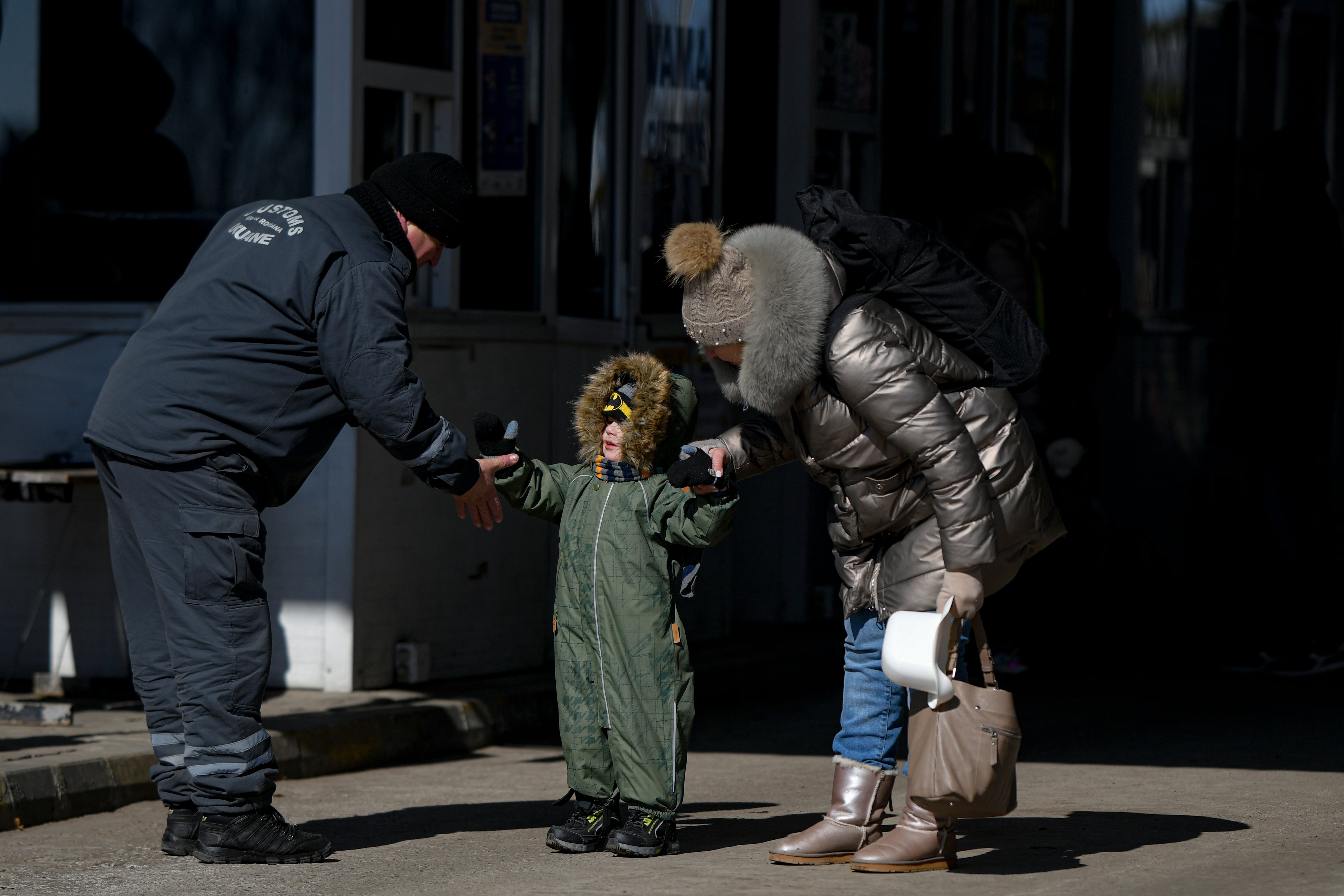
On the diplomatic front, President Joe Biden announced the US would dramatically downgrade its trade status with Russia as punishment for its invasion of Ukraine.
It would also ban imports of Russian seafood, alcohol and diamonds and revoke to Moscow’s “most favoured nation” trading status, allowing it to impose higher tariffs on some imports.
“The free world is coming together to confront Putin,” Biden said.



Join our commenting forum
Join thought-provoking conversations, follow other Independent readers and see their replies
0Comments